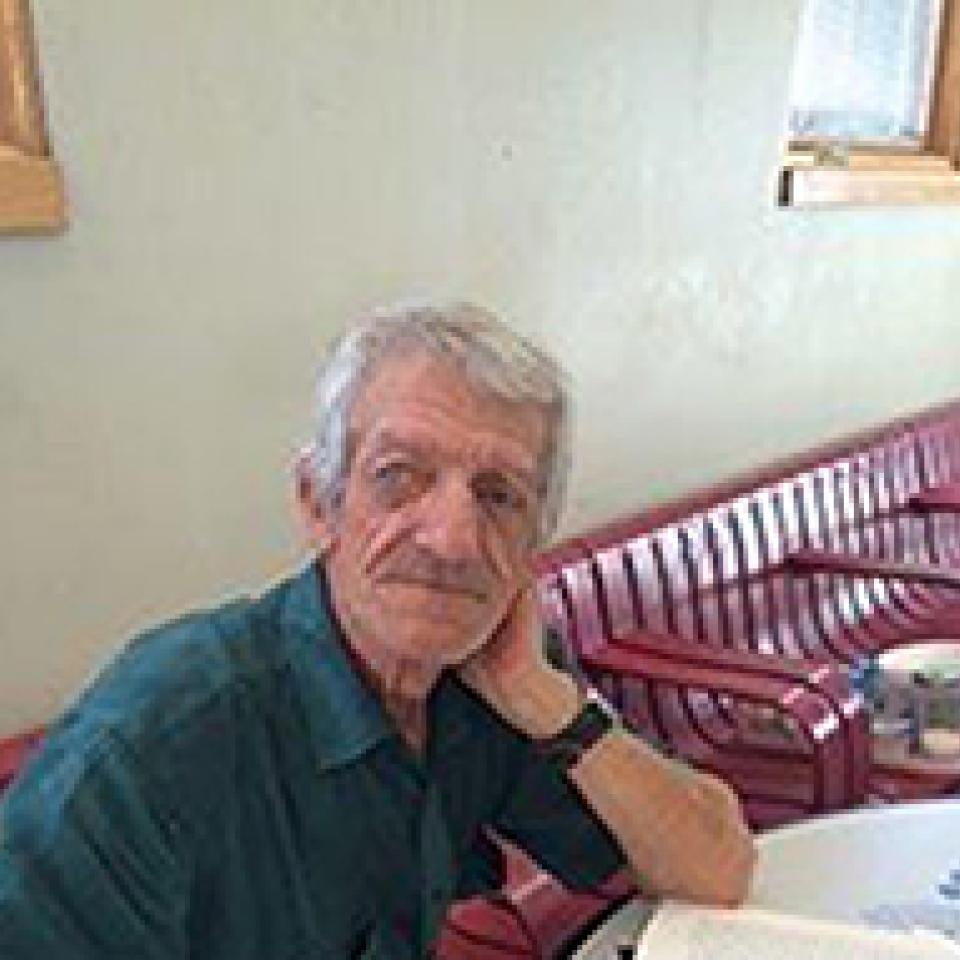
Remembering Andy...
Andras Horvath was stabbed to death on the sidewalk on December 2, 2016. He was a 73-year-old, chronically homeless Hungarian man. He was fully blind in one eye. Given his age, he had an enviably full head of silver hair. He went by Andy.
When he first began working with Health Care for the Homeless, Andy seemed hardened, indifferent to help, and apathetic about his life. He often spoke in devastating, bleak detail about his potentially fatal medical conditions and 10 depressing years living at Baltimore Rescue Mission. He would shrug before stoically concluding, "it's OK."
Our team soon realized that this was self-protective behavior. During the decade that he experienced homelessness, numerous helping organizations began but ultimately fell short of untangling problems related to Andy's nationalization documents. Andy had a documented, legal work history in the US, and received SSI. But having lost all of his official identification he was unable to apply for any of the subsidized, affordable senior housing that his age should have allowed him to enter. This seemingly simple, banal problem of missing paperwork was decisive in perpetuating his experience of homelessness.
Though Andy was eager to convey that he was proudly solitary, he was interested in connecting with other people. He loved long conversations. He was often observed spending whole afternoons talking with people that he did not even particularly like. Given the amount of stability, respect and love he was denied, Andy was uncommonly genial, social and gregarious.
He did not have material stability as a young person, and moving abruptly from one caregiver's home to another's probably affected his relationships for the rest of his life. To escape an unhealthy, abusive family situation as quickly as possible, a 16-year-old Andy forged paperwork so he would appear old enough to join the Hungarian army. Andy served as a Lieutenant in Vietnam. Returning from deployment, he was soon incarcerated for participating in a group resisting Soviet occupation. After experiencing four years in Russian prison, he decided to leave Europe altogether.
He arrived in America and found work as a cabinetmaker. When his wife of 23 years died, Andy began drinking extreme amounts of alcohol. He was a functioning alcoholic until he retired at 65. Without routine or purpose, he drank more, which lead to him losing his apartment, and contributed to several serious medical problems.
Recently, things seemed to finally be improving for Andy. I talked to him the week before he died. The birth certificate we requested from the Hungarian Embassy had arrived, and he was close to getting his green card. Multiple medical specialists were finally communicating with each other and devising a plan of care to treat him. He said that he was physically pain free for the first time in several years, and allowing himself to feel hopeful. He was beginning to believe there was some possibility that he might be able to leave Baltimore Rescue Mission.
Andy believed strongly that people should be logical, independent and self-contained. He was dependable; the numerous times that he was unable to access urology, oncology or gastroenterology were uniformly due to issues with his providers, never because he did not do his part to show up. Police initially did not release his name after he was killed because they hoped that they might be able to notify his family. He had none. He was well-liked by residents and staff at the shelter, and a regular presence at Beans and Bread.
—Phill Sheldon, Convalescent Care Coordinator, Health Care for the Homeless
More Recent News
We are thrilled to welcome Nikia Woodard, our new Director of Human Resources! With more than two decades of experience in the HR field, Nikia previously held leadership roles with the Maryland Transit Administration, Unified Women’s Healthcare and a behavioral health residential treatment facility for youth in Baltimore. Most recently, she served as Director of Employee Experience & Organizational Development at Loyola University Maryland, implementing university-wide professional development programs and encouraging a culture of continuous learning. Read on to learn more about Nikia (and her favorite snack)…
After a year of serving as Practice Manager of West Baltimore, Alkema Jackson is moving into the new role of Director of Practice Operations, Community Sites! She joined Health Care for the Homeless in 2022 as the Client Access Project Coordinator, collaborating across departments to help more people connect to agency services, and in 2023, she received a Core Value Award for Hope. Read on to learn more about Alkema’s approach to this new position…
Meet Christana Greene, our new Director of Compliance! With more than five years in the compliance field—most recently as Senior Quality and Patient Safety Specialist at GBMC Healthcare—Chrissy brings frontline insight to the role. She began her career as a medical assistant, gaining firsthand experience in what it takes to keep care safe and operations running smoothly. In her new role, Chrissy is focused on building a compliance culture grounded in safety, integrity and accountability. Read on to learn more about Chrissy...
Baltimore gets dangerously cold, and too many of our neighbors are out there. Here are three simple things you can do to make a difference in someone’s life this winter.




